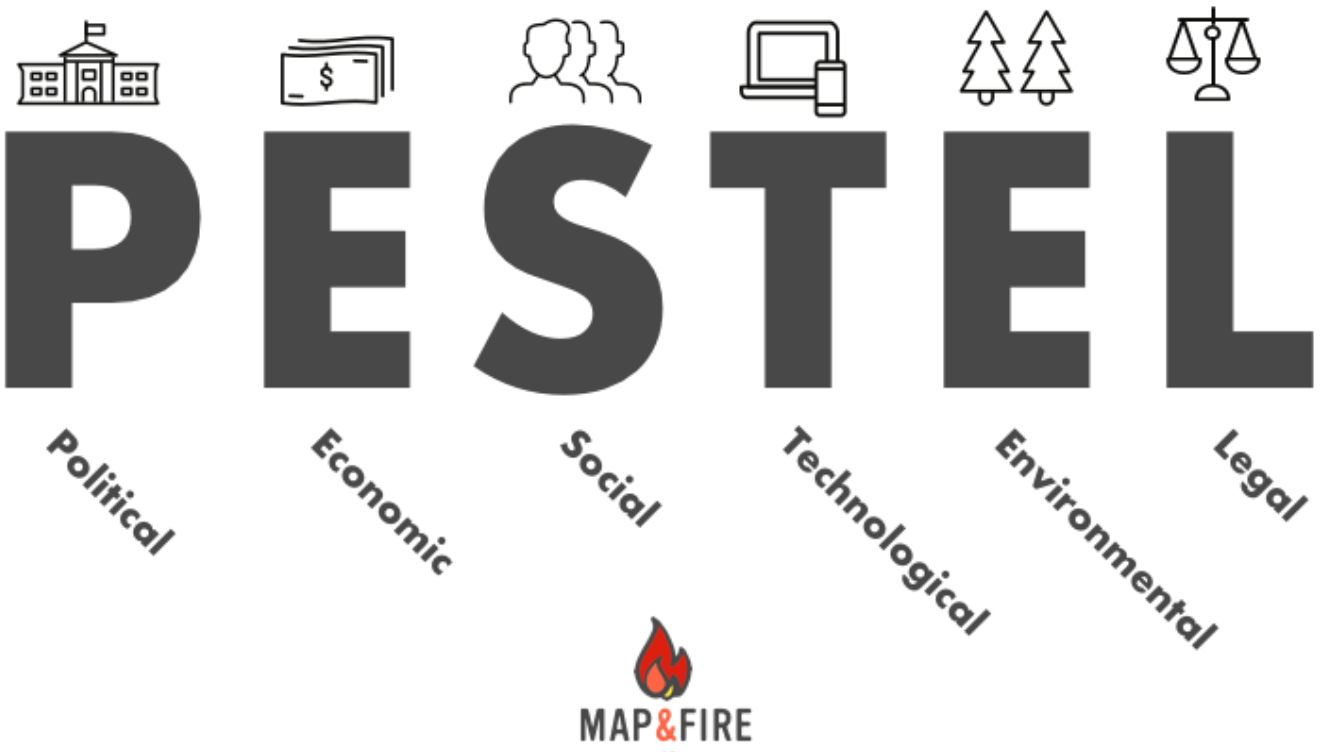
👾 Game Master
6/21/2022, 11:19:08 AM
PESTEL
What is PESTEL?
PESTEL is a qualitative, fundamental evaluating framework to measure the external environments (or the so-called macro analysis). PESTEL is frequently used by both business managers and investors. For managers, they use PESTEL to break down their business strategy to see if their business will succeed given the external situations. For investors, PESTEL is important as it helps to measure the macroeconomic advantages and disadvantages of a company and assists in selecting the industry or company to invest in. PESTEL also provides a snapshot of the company’s resilience under exceptional macroeconomic conditions. PESTEL helps seek the risks and opportunities from a broad perspective. It also embedded the ESG (environmental, social, governance) (Link to Why Is ESG Important?) factors, a popular approach in recent years. Some key points derived by PESTEL can work together with the two other frameworks, known as SWOT and Porter's Five Forces.

Picture source: https://mapandfire.com/field-guide/pestel-analysis-framework/
What Are the Components?
PESTEL stands are Political, Economic, Social, Technological, Environmental, and Legal factors.
1. Political
Some worth-noticing factors are:
- Political policies
- Tariff
- International trade
Example: A semiconductor company increases its production because the country supports local semiconductor companies and offered subsidies to the company.
2. Economic
Economical factors are crucial to both the company’s sales and its market/industry. Some worth-noticing factors are:
- Interest Rate
- Monetary policies
- Inflation
- Unemployment rates
Example: A company adjusted its debt structure after forecasting an increase in the inflation rate.
3. Social
Some worth-noticing factors are:
- Race
- Age
- Education
- Public discussions
- Culture
Example: Ethical concerns about the use of child labor hurts a company’s appeal to consumers.
4. Technological
Some worth-noticing factors are:
- New invention
- Automation to increase efficiency
Example: A manufacturing company automized its machines for better production efficiency and a more transparent production line.
5. Environmental
Some worth-noticing factors are:
- Climate change
- Pollution
- Weather
Example: A chemical company was fined $100,000 for carbon emission.
6. Legal
The barrier between legal and political factors is sometimes blurred by people. However, legal differs from political as it measures the things that a company can not do because of legislative issues. Some worth-noticing factors are:
- Labor laws
- Industry regulation
- Licenses
- Intellectual properties
Example: Cigarette manufacturers shut down their businesses because of the country’s new regulations on the industry.